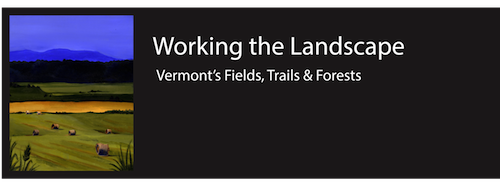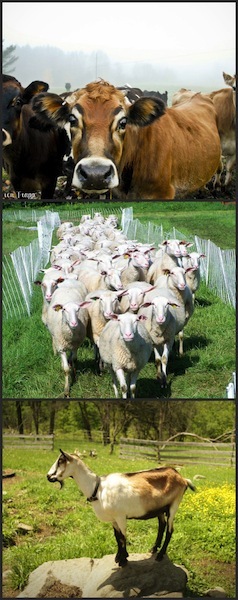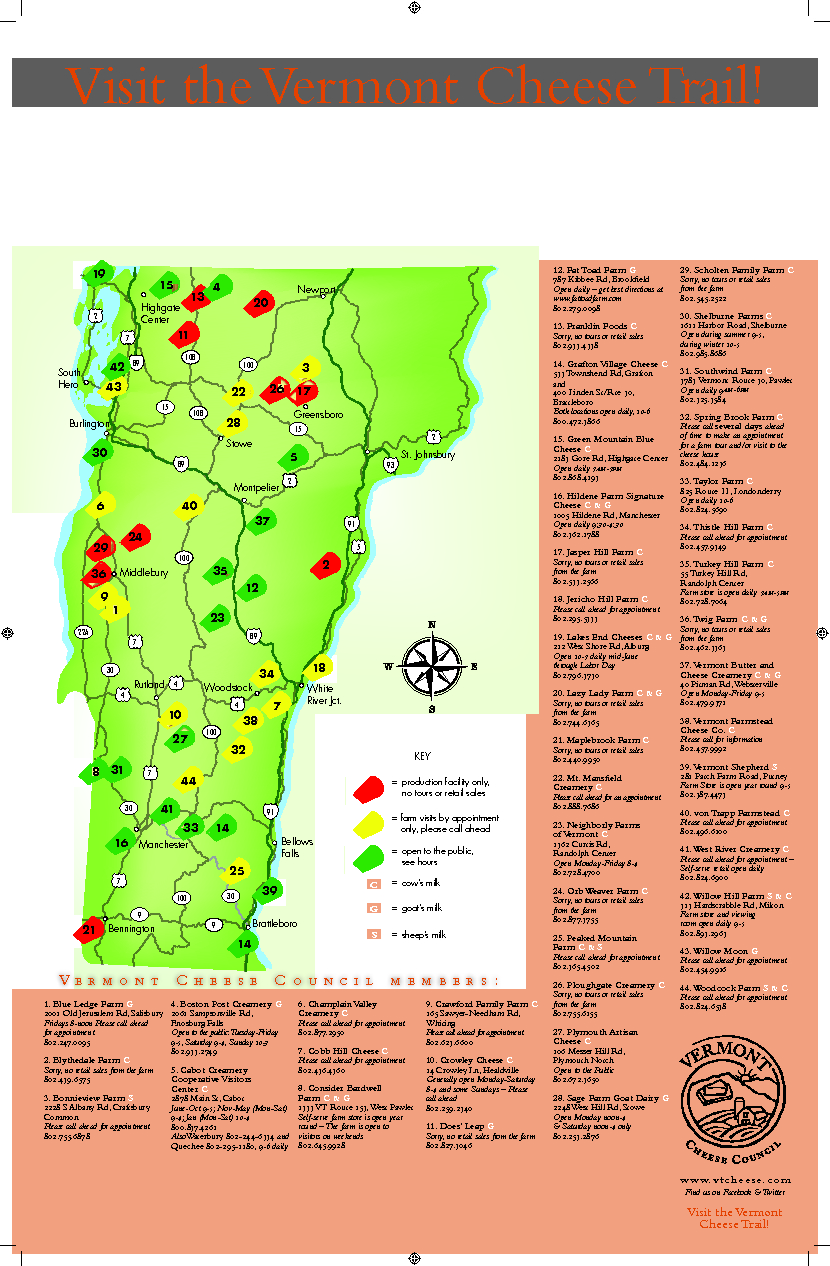Trails: Food & Agriculture
Trails bridge the worlds of work and recreation and provide pasage through Vermont's fields, forests, and waterways. The Cheese Trail invites visitors to explore Vermont's farmsteads and facilities and experience a taste of place. Trails are shaped by and help to shape Vermont's working landscape.
Cheesemaking in Vermont
Vermont is home to 45 cheesemakers who produce 150 varieties of cheese. Cheese in New England is traditionally made from the milk of cows, goats or sheep. In some cases a cheesemaker will use more than one type of milk to create a blend.
“Artisan” or “artisanal” designation implies that the cheese was produced in part by hand, in small batches, and was made using traditional forms of craftsmanship and technique. “Farmstead cheese," as defined by American Cheese Society, is a product that is made on the same farm where the animals that supply the milk are raised.
The Vermont Cheese Council & The Cheese Trail
The Vermont Cheese Council (VCC) is a member association of cheesemakers who are dedicated to the production and advancement of Vermont cheese, and to the education of food professionals and the public about the art and science behind their products. The Cheese Trail Map is available to the public and provides information on locations, types of cheese, and opportunities for agritourism.
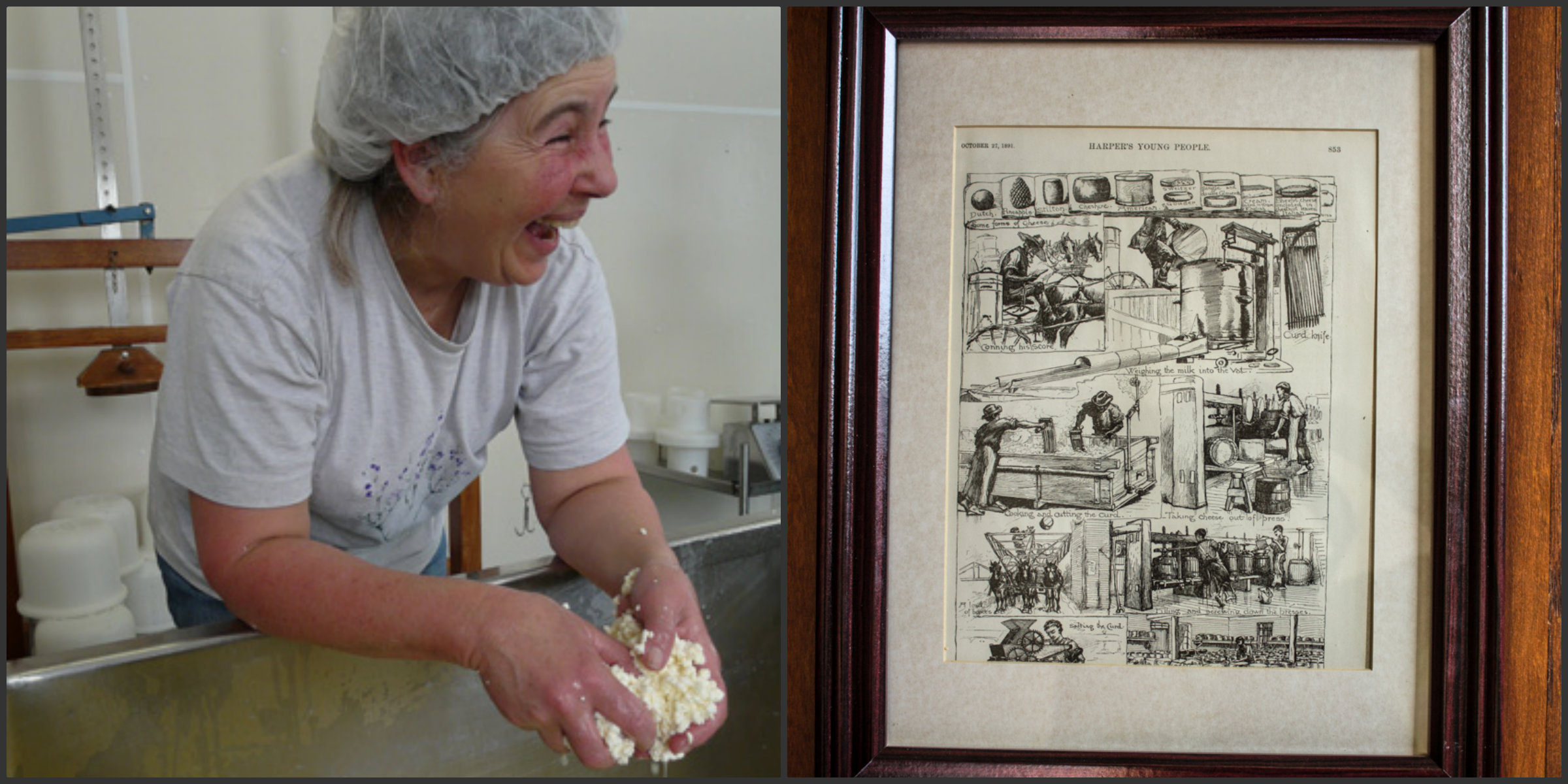
Cheesemakers utilize various tools to create and age artisan cheese, 2014 & 1891.
- Cheesemaking in Contemporary Vermont. Vermont Cheese Council.
- Harper’s Young People, October 27, 1891. Courtesy of Catherine Donnelly.
Cheese and the Working Landscape
Those who visit a cheese-making facility or farm, and who purchase artisan cheese take part in a shared experience that supports a working landscape. People, animals, land, work, and values are crucial elements in the making of a food that gains value from its attachment to place. Artisan cheese is a value-added product that allows agricultural producers to earn a livelihood while preserving and promoting the rural working landscape that Vermonters value.
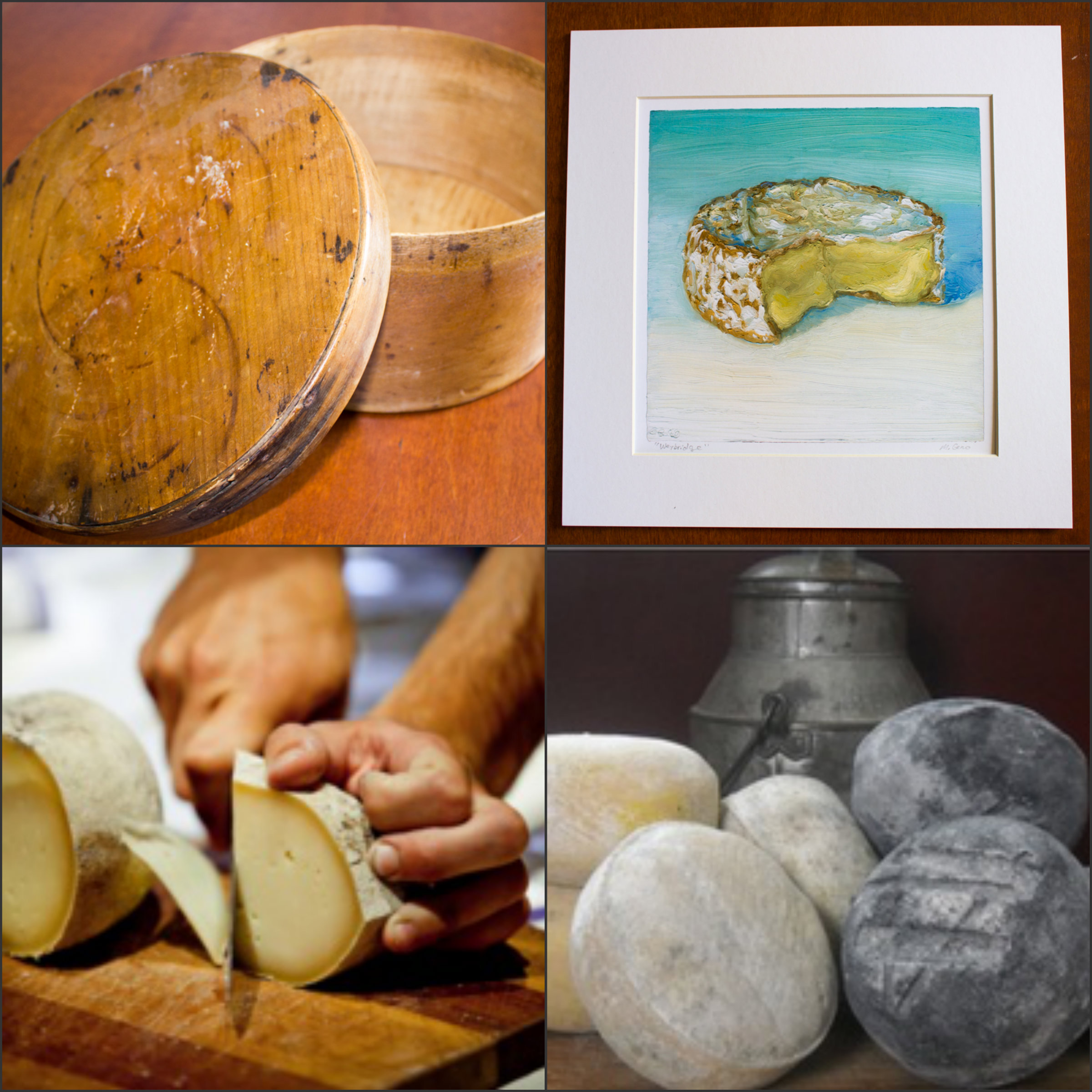
- Cheese Box from Ramsdell Rindge, NH, 1870. Antique box used to store and ship local cheese. Courtesy of Catherine Donnelly.
- Weybridge by Mike Geno, n.d. Weybridge is an organic cow’s milk cheese made by Scholten Family Farm in Weybridge, VT. Courtesy of Catherine Donnelly.
- Vermont Artisan Cheese, 2013. Vermont Cheese Council.
- Vermont Artisan Cheese, 2013. Vermont Cheese Council.
